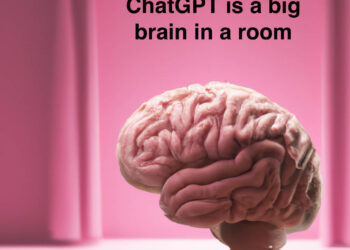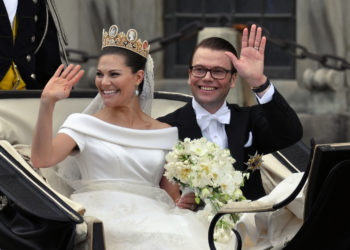
Back in 1999, the original “Cluetrain Manifesto” blew onto the scene with memorable force, galvanizing thinking in some ways, challenging it in others. Consisting of 95 theses — meant to elicit Martin Luther’s 95 theses nailed to the door of the church in Wittenberg — the original Cluetrain Manifesto was a cry for reform and a protest against commercialism. It attempted to cast the Internet in terms that smacked of religious mysticism and piety. Written by Doc Searls and David Weinberger, the first Cluetrain arrived at the peak of Internet innocence — before the dot-com bubble burst, before Wikileaks, before the NSA, before Google, before the iPhone, before Twitter revolutions, before astroturfing, before cyberbullying, and before Facebook.
Recently, another 112 “new clues” were posted online, approximately 15 years after the original 95 theses. The shift from theses as a clear analogy to the Protestant Reformation to something more banal like “clues” suggests immediately that we’re on less hallowed intellectual ground. Reading the new entries only reinforces this initial impression, despite the occasional and annoying reliance on religious language (“Commandments” and “sisters and brothers” and so forth).
The use of religious language to make their points feels especially jarring these days, as it identifies the authors as worshipers of things humans built. Searls and Weinberger want to imbue the Internet with some mystical and supernatural capabilities, but even as a rhetorical gambit, it’s tired and trying. Most of us don’t have religious feelings about the Internet anymore, if we ever did, which I think reflects the fact that the Internet is now pretty well understood and managed — indeed, it is now where we conduct business, war, romance, and friendships, sometimes to the detriment of non-Internet experience. While the Internet in 1999 seemed to be all upside and far more mystical, now we all know it’s a tool humans use with mixed results and a wide range of motivations.
Consequently, as opposed to the first 95 theses from 1999, the new clues show signs of real strain in how they are written, with plenty of contradictions in their midst. Let me pick a couple of new clues to illustrate how strained this new approach to declaiming revolutionary and quasi-religious thoughts seems:
Clue 8. The Internet is not a thing any more than gravity is a thing. Both pull us together. I think anybody who has worked with Internet initiatives over the past 15 years is going to choke on this sentence, because it is both silly and naive. Simply put, the Internet is no long as mysterious and portentous as it was in 1999. The Internet is a thing that we know can be shut down, damaged, hijacked, hacked, monetized, and choked. It is a thing we made, something we have to maintain, and a set of installations with clear features, mass, and protocols. And the laudable idealism of the last four words clash with what we’ve all experienced and learned — about how the Internet can be used to divide, threaten, steal, and harass through hacking, cyberbullying, sabotage, espionage, and extremist videos and language.
Clue 12. There has not been a tool with such a general purpose since language. How about paper? Or glass? Or the ability to control a wide swath of the electromagnetic spectrum? (The last two were necessary for us to invent the high-speed Internet, so perhaps they are more general purpose.) This kind of grand statement comes from worshipers of the Internet, of which there are far fewer these days. This is a change worth contemplating. I think the Internet has far fewer worshipers these days because we’ve seen that it is not something holy and divine and all-powerful. Instead, it is now what most of us have to wrestle with in our professional, personal, social, and civic lives all the time. Again, the attempt to invoke a religious feeling about the Internet seems completely jarring and unreal.
The rest of the 112 clues are a mixed bag and very fragmented. Some are just silly sentences parsed into bullet points. Many of them quite dispensable and unnecessary. It’s as if the authors really don’t have a point, but instead have written out a litany of observations and complaints — about how we have failed to keep their temple clean and pure, as the human stain leaves its trace. The new Cluetrain is not very good, basically. It attempts to cover issues like privacy, trolls, spying, marketing, and etiquette in the same jaunty way as the initial manifesto, but falls flat and seems desperate.
What has changed in the 15 years since the first Cluetrain? We have. We are no longer starry-eyed worshipers of the Web, but rather workers and people who use the Internet all the time, pretty much know how it works, and understand more and more of the trade-offs it creates. We know that it hasn’t made food free or politics simple or power more distributed or economics fair. We know it is actually something often used against us, as our credit card numbers are stolen, privacy statements are slowly modified to exploit us, and work is crafted to follow us to bed via our tablets and smartphones. We’re a little sick of it, maybe, and aren’t buying the idea that there is another glorious Internet future full of love and human connection. We tried that, and all we have to show for it is a tether shaped like a smartphone.
The latest attempt by the Cluetrain authors to rekindle the spirit of 1999 fails not because the authors are wrong about many things, but because they are wrong about the overall premise. There is no magic to the Internet. It’s now so real and integral that it needs serious, grown-up, secular management and governance. That’s the big clue they missed. The train has left the station, the magic is gone, and life on-board seems more like “Snowpiercer” than “The Polar Express.”
Discussion
1 Thought on "The New Cluetrain — A Barometer for What Has Changed in the Last 15 Years"



